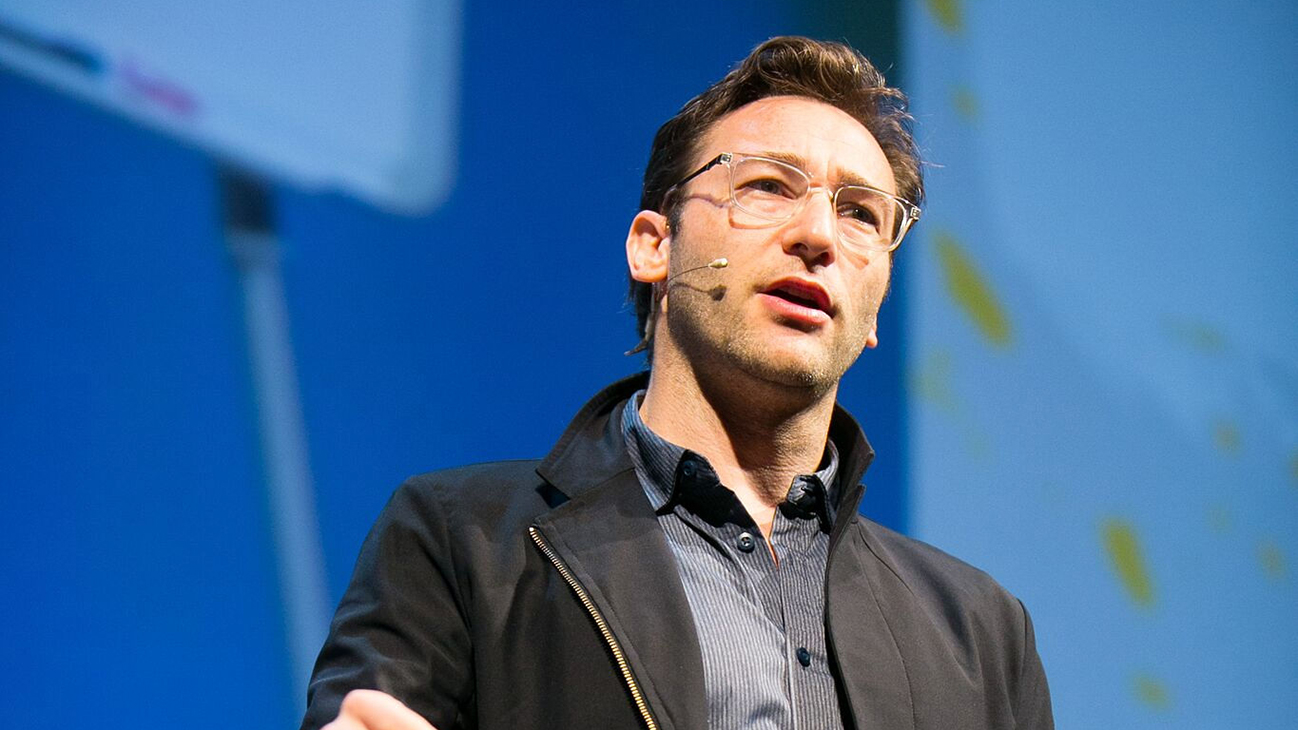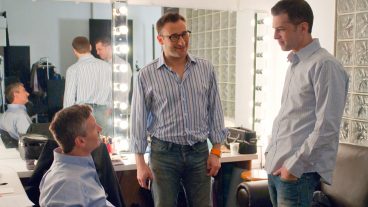A finite game is one with set rules, set players, and a set endpoint such as baseball, football, chess, etc. In an infinite game however — like business, politics, and life itself — the players come and go, the rules are changeable, and there are no set winners or losers. Embracing an infinite mindset, argues Simon Sinek, renowned leadership expert and business thought leader, is the key to thriving in today’s ever-changing world.
The bestselling author of Start With Why, Simon will release his much-anticipated new book The Infinite Game this October. It promises to challenge today’s accepted notions of work and provide a roadmap for becoming a leader of the future.
Right now, we live in a world where there is pressure on us to make money, hit targets, reach arbitrary deadlines, etc. This structure felt wrong to Simon. As he learned more about finite vs. infinite games, he discovered it’s because we are all already unwitting players in infinite games — marriage, friendship, politics, education, careers, etc., have no set end, no finish line. You can’t win them.
Business is the same. The rules, players, and goals are always changing. Setting arbitrary targets and deadlines only set us up for failure in the long run and create a toxic culture of mistrust, lies, and burnout. In an interview with Inc., Simon said:
The concept of using mass layoffs to balance books. Think about that for a second, we are going to use the livelihoods of our people in order to meet arbitrary projections for an arbitrary date — we’re still profitable, we just want to be more profitable — and in so doing destroy our culture, destroy trust, and destroy cooperation.
And then companies are flabbergasted why they can’t hold onto employees, why discretionary effort is declining, and they blame millennials — ‘millennials aren’t loyal’. No, that’s not true at all.
Millennials are growing up in a world in which companies offer no loyalty, that it’s not a meritocracy. It doesn’t matter how hard you work, it doesn’t matter how good you are, it doesn’t matter how good of a teammate you are, that if the company misses its arbitrary projections on the arbitrary date — you’re out.
Focusing on these short-term, fixed goals can also often inhibit innovation and growth because it blinds us to the long term.
Here are some examples of finite industries that are embarrassing. The publishing industry didn’t invent Amazon, the movie industry didn’t invent Netflix, the car companies didn’t come up with Tesla. An upstart is taking on auto manufacturers. They’re so preoccupied with the existing business models and protecting what they have.
When Blockbuster was a thing, they saw Netflix coming. They saw the subscription model that Netflix was offering, which was different to their model. Even though the streaming quality wasn’t there yet, they knew it was coming. The then CEO of Blockbuster recommended to the board that they really needed to change their business model and the board would not allow him to do so because the company made 12% of their revenues from late fees, and if you go to subscription, you’ll lose all that revenue. And now they’re bankrupt.
That’s called finite thinking, where they’re so obsessed with protecting the status quo because they have benefitted from the status quo, that they literally will not undergo the existential flex that they need to take to stay in business.
So now you have publishing that has their lunch being eaten by a company they should have invented, you have the movie industry struggling to keep up.
Companies playing the infinite game, however, are far more flexible. They can adapt to the evolving world around them and grow alongside new technology and changing consumer mindsets.
Why? Because these companies have a sense of cause at the heart of them. Their work isn’t about being the biggest or the best, because they understand that there is no such thing. There is still a sense of winning, you can see progress and advancement, but it’s for the cause, it’s for a purpose instead of meaningless timelines and guidelines. This type of work feeds an employee’s soul, it gives them value and meaning.
There is also a greater concentration of trust between teams. People are willing to say they’ve made a mistake and ask for help because they aren’t afraid of being put on the chopping block for it.
Lastly, there is also, as Simon calls it, a “clever shift” in how you view others in your industry. Instead of competitors, they are your rivals. Competitors are someone to beat, while rivals are someone whose strengths can reveal your weaknesses and give you something to improve upon.
It’s a difficult mindset to change. This is why Simon sought to write a guidebook to help leaders and organizations because, whether we like it or not, we are living in an infinite world. If we can adapt our thinking, leaders and organizations will see innovation, trust, and cooperation skyrocket.
You can change the rules of the game, you can’t choose to change the rules of the infinite game. It’s more like a force that we have to cope with. For those who accept the force, you can build airplanes, and for those who reject the force, you can flap your arms when you jump off a cliff and it will feel amazing for a while and then you’ll hit the ground.
Watch Simon’s interview with Inc. to learn more about The Infinite Game, and why Simon himself is striving be an infinite leader.
Simon Sinek may be best known for popularizing the concept of “Why” in his first TED Talk in 2009. It rose to become the third most watched talk of all time on TED.com, with over 35 million views.
Simon, along with his Start With Why team, Peter Docker, David Mead, Stephen Shedletzky, and Health Slawner, have had the opportunity to work with a diverse mix of leaders and organizations in every industry — from American Airlines to Disney, Deutsche Bank to MARS, big business to entrepreneurs, police services, the United Nations, and more.
All sought-after speakers, they travel the world on their mission to help others looking to discover, articulate, and bring their WHY to life.
Interested in learning more about Simon and his Start With Why expert team? Email us at [email protected].




